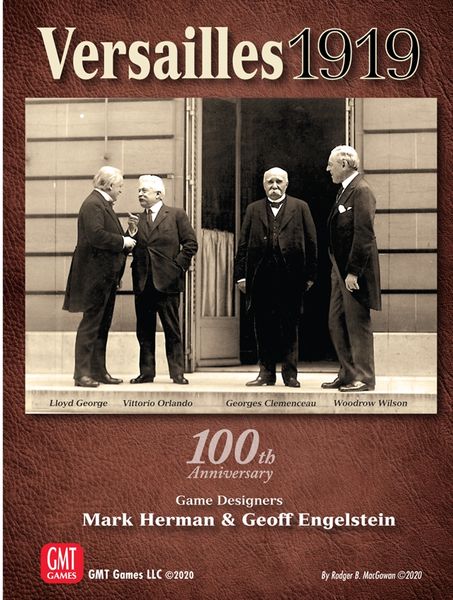Versailles 1919 is a board game that takes players back to the aftermath of World War I, specifically to the Paris Peace Conference of
This pivotal event in history saw the leaders of the victorious Allied powers come together to negotiate the terms of peace and redraw the map of Europe. Players take on the roles of these leaders, engaging in negotiations, making alliances, and vying for power and influence in the post-war world.Game Components of Versailles 1919
Game board representing the conference tableInfluence cards for biddingStrategy cards depicting national agendasMilitary unitsIssue cards for various historical topicsPersonality cards featuring historical figures like Woodrow Wilson, David Lloyd George, Vittorio Orlando, and George ClemenceauPlayer aid cardsRandom event cardsHappiness track
How To Setup Versailles 1919
To set up the game, each player starts with 15 influence and three military units. The board is arranged to show the conference table, waiting room, and various issue cards. Players select their national leader and begin with a set of strategy cards that outline their agenda. The game state includes regional unrest and issues that need to be settled, which are drawn from the issue deck.
Gameplay Mechanics and Game Objective
Card Bidding Mechanism: Players use influence to settle issues aligned with their agenda.Settling Issues: The winner of an issue exhausts their influence, decides the resolution, and gains points. Losers recover half their influence.Military Actions: Optional actions to demobilize forces or control regional unrest.Uprisings and Crises: Random events can cause settled issues to become unsettled, requiring military and influence bids to resolve.Binding Deals: Players can make deals to recover influence or settle issues beneficially.Game Objective: Accumulate the most points by settling issues and progressing with your national agenda. The game ends when the final issue is settled, and the player with the most points wins.
Player Experience
Playing Versailles 1919 involves a deep dive into historical negotiations, requiring players to balance their national agenda with the need to keep domestic constituents happy. The game is challenging, especially in solo mode, where the player’s nation representation changes dynamically. The gameplay is engaging, with a mix of political maneuvering and strategic decision-making.
Pros
Innovative Solo Mode: No fixed nation to lead, adding a “behind the scenes” manipulation element.Historical Depth: Immersive experience for history enthusiasts, particularly those interested in the post-WWI era.Social Interaction: Excellent for social meetings and negotiations, fostering a sense of diplomacy among players.Moderate Complexity: Easy to grasp the main mechanics, but challenging to master.
Cons
Errata and Rules Clarity: Some issues with rule clarity and minor typos in the initial release.Length for Two Players: Games with two players can drag due to the mechanics designed for more players.Visual Challenges: Small font on some cards can be difficult to read.
Personal Thoughts on Versailles 1919
Versailles 1919 is ideal for those who appreciate historical games, enjoy negotiation and strategy, and value well-designed and beautifully produced games. It is not for everyone, particularly those seeking action-oriented games, as it focuses heavily on politics and agreements. For fans of the *The Great Statesmen* series, this game offers a unique and nuanced experience that is both educational and entertaining.
We are supported by our audience. When you purchase through links on our site, we may earn an affiliate commission, at no extra cost for you. Learn more.

